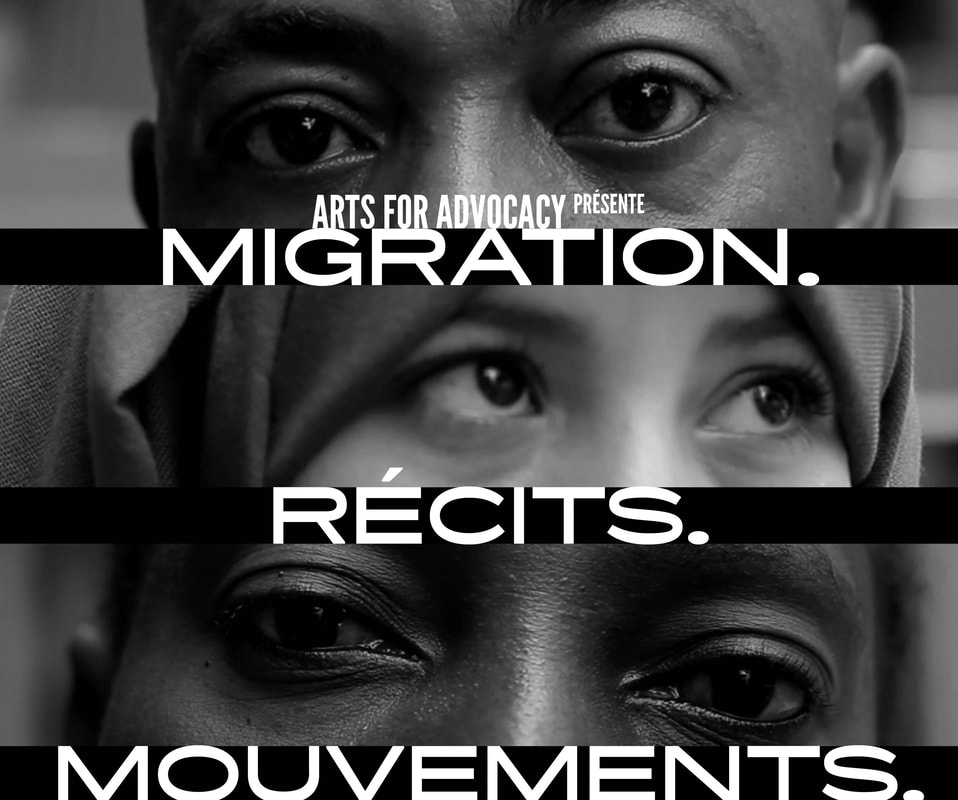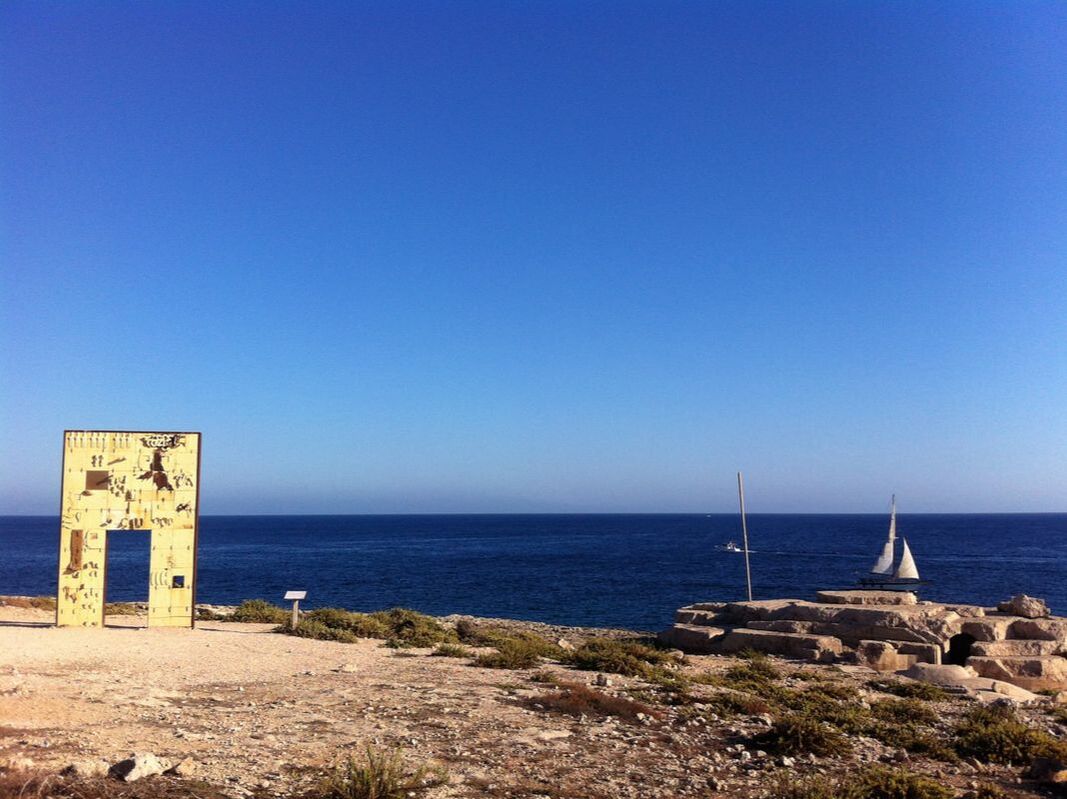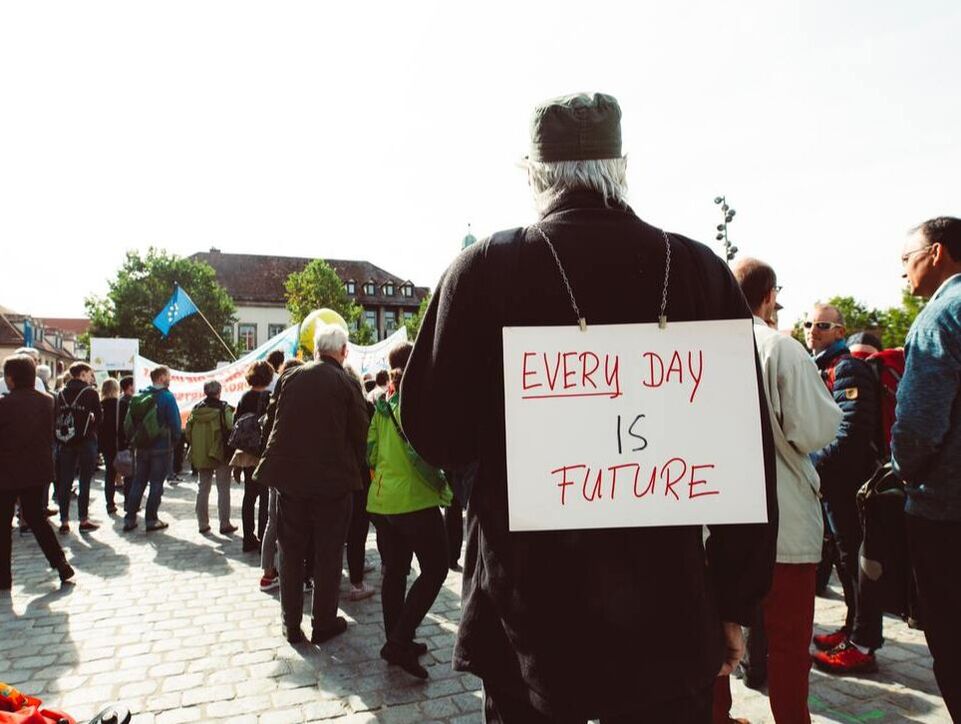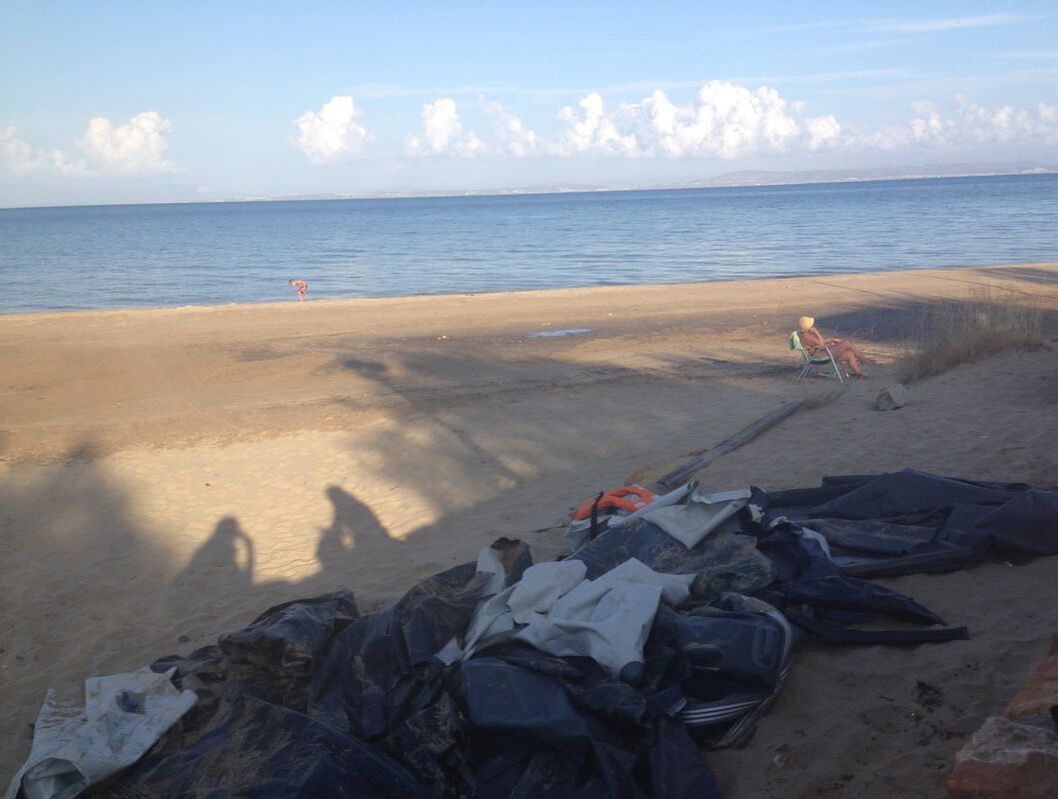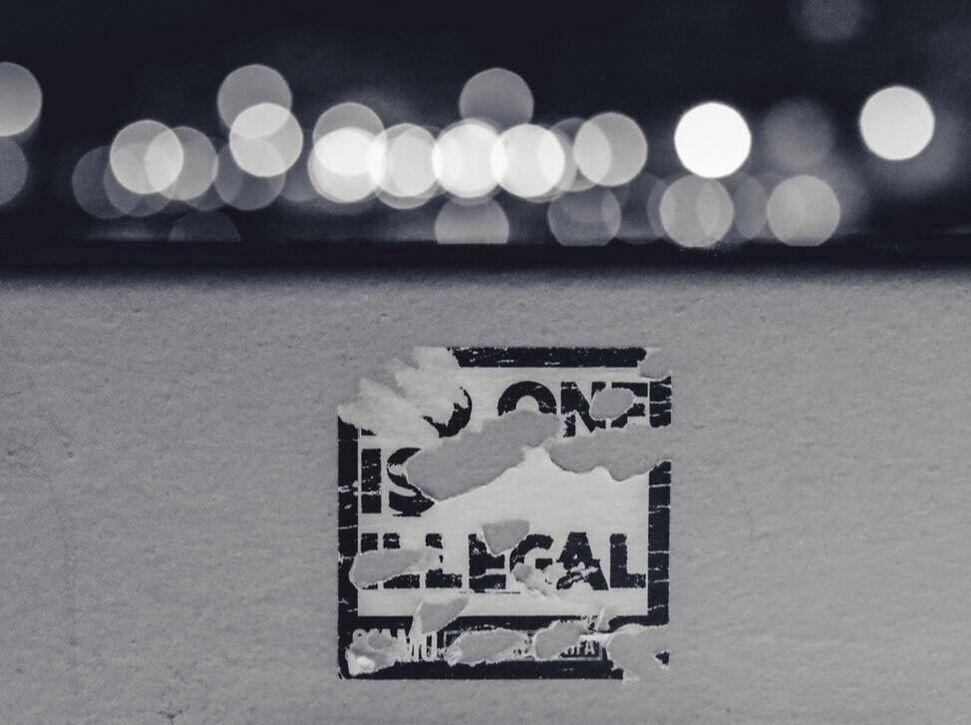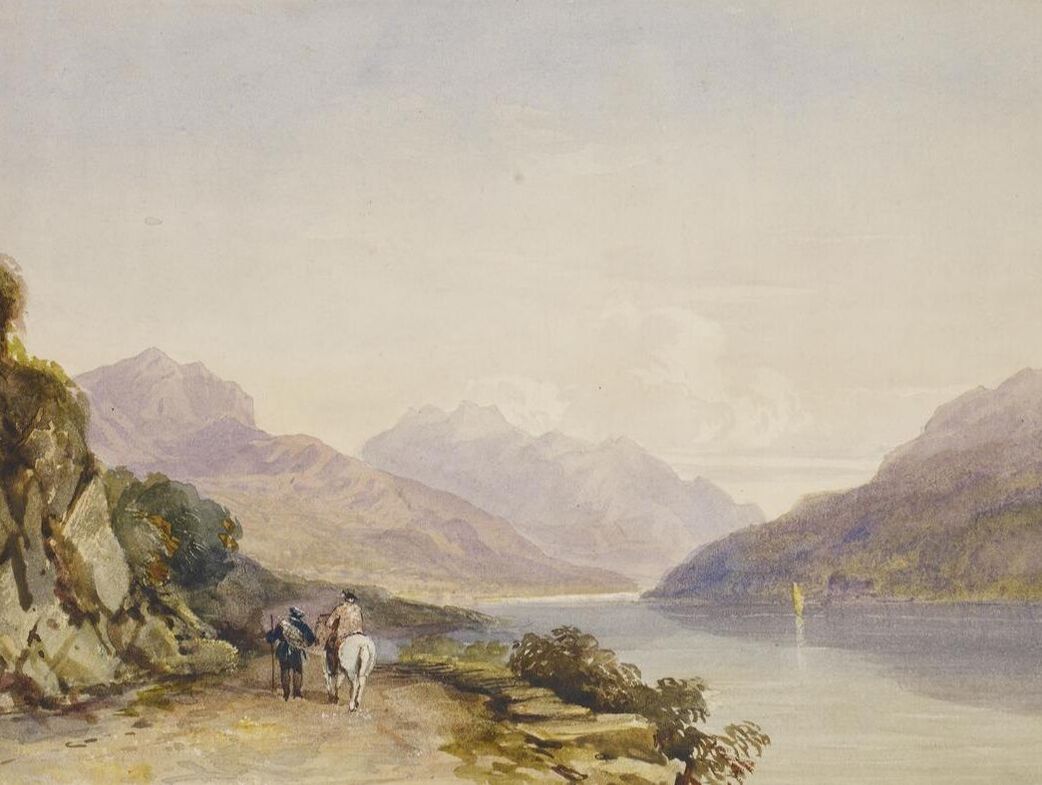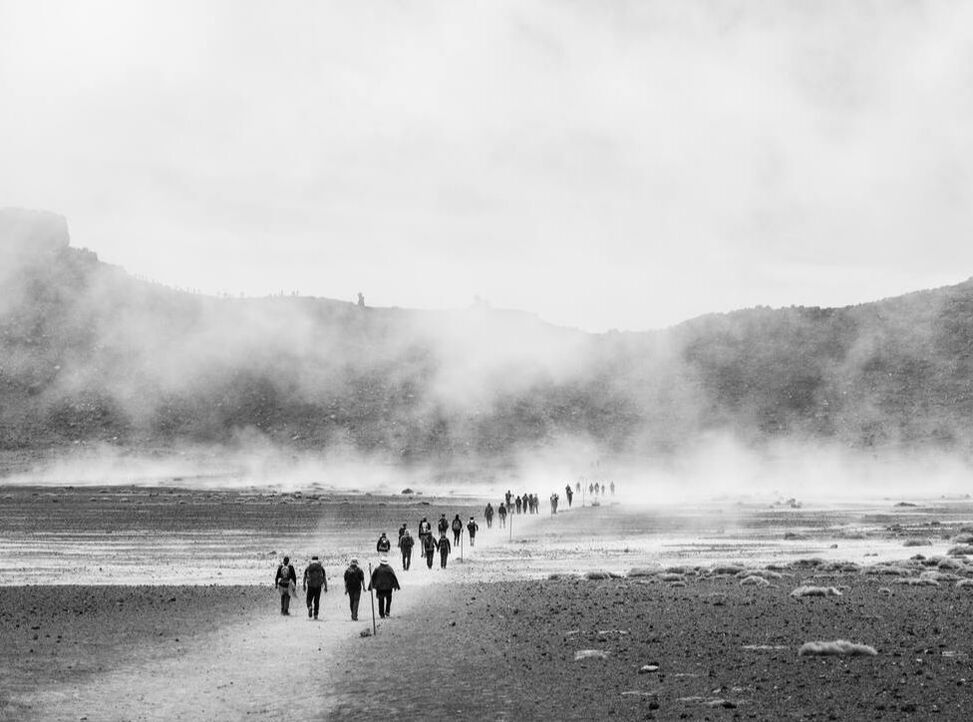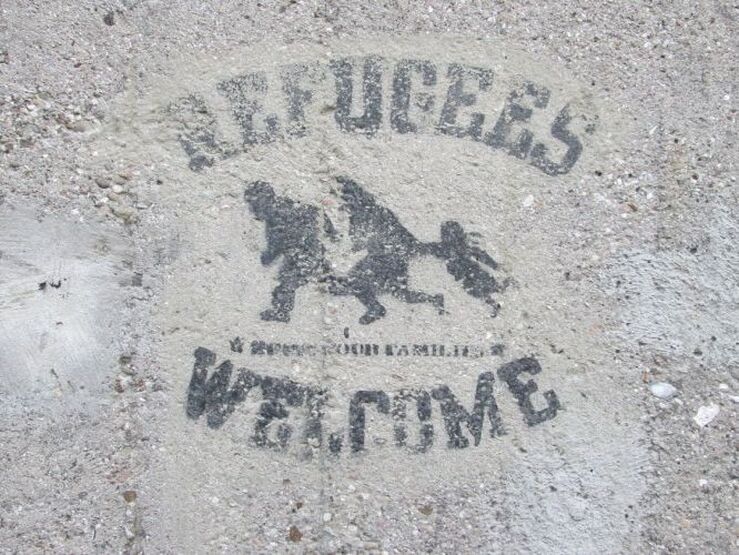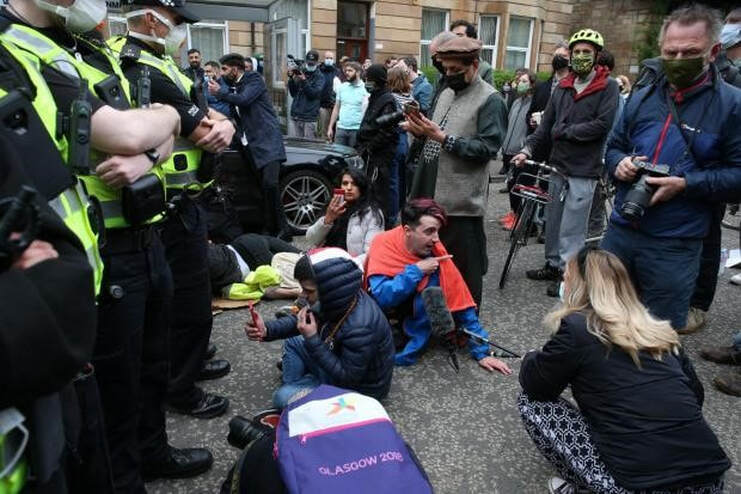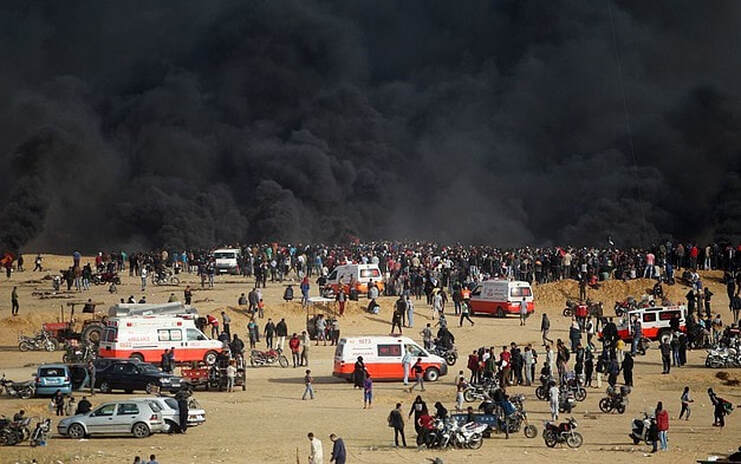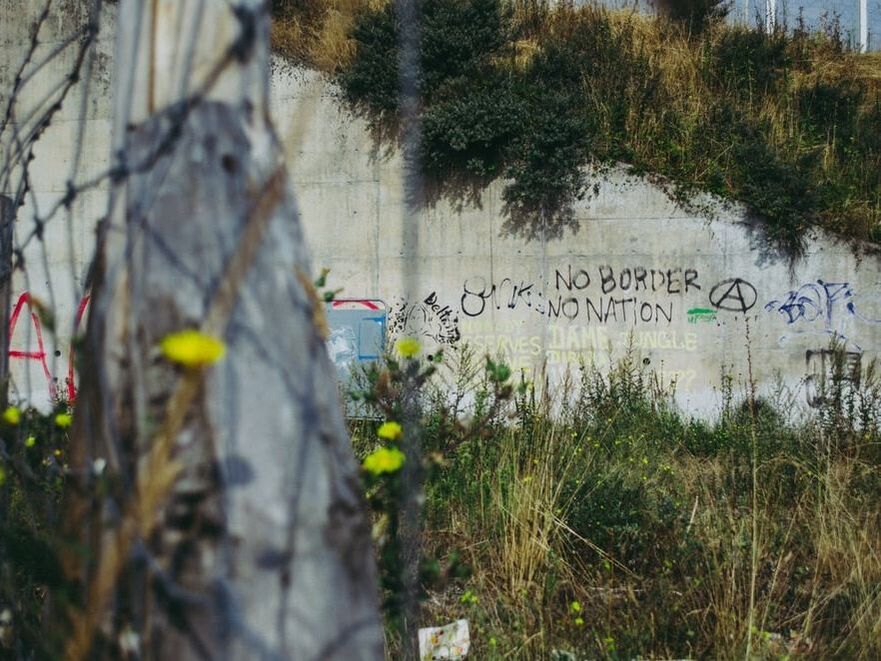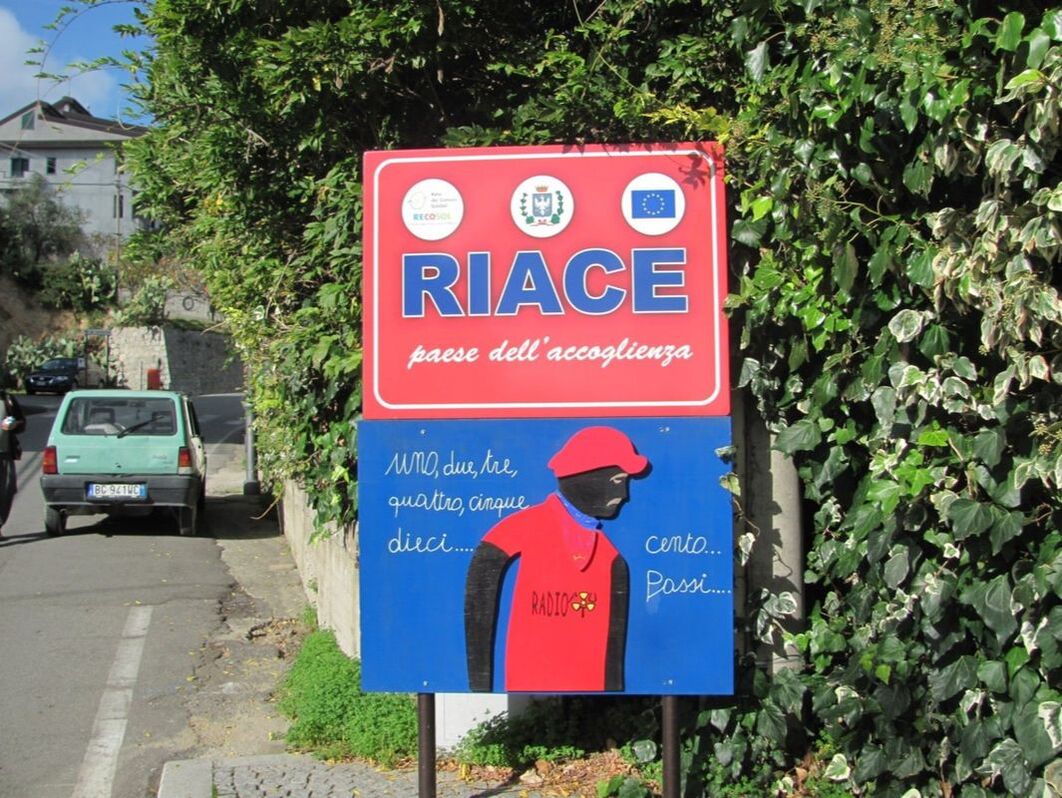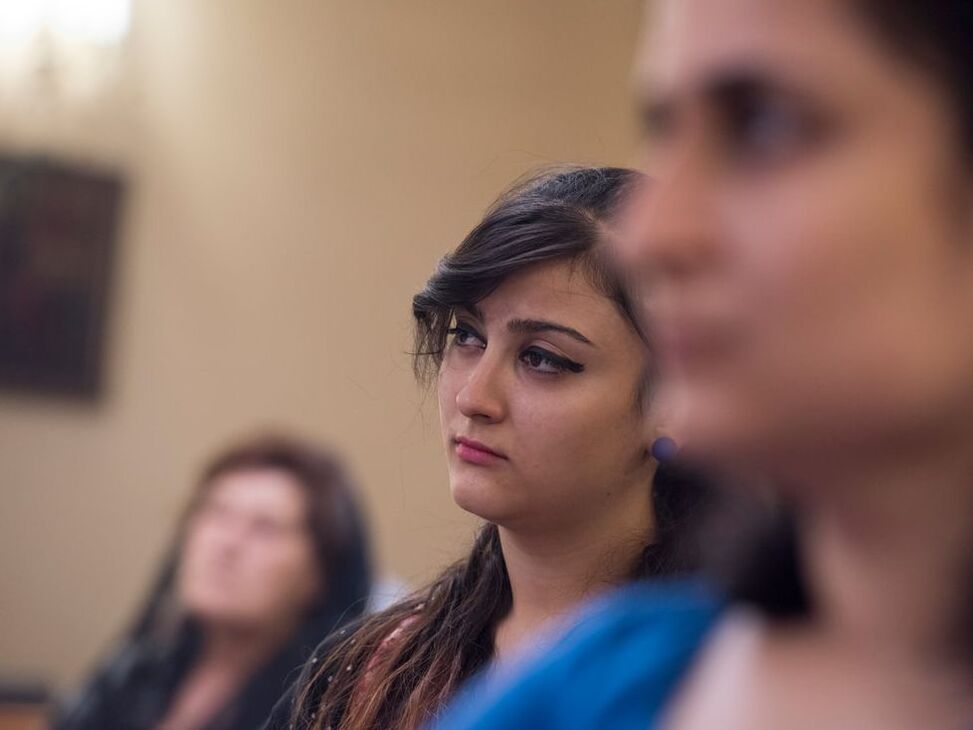|
|
|
Blog post by Sebastien Bachelet, University of Manchester, UK and Mariangela Palladino, Keele University, UK
Overcrowded boats capsizing in the Mediterranean Sea feature regularly in the news. Yet, the discrepancy in the coverage and rescue efforts deployed for the boat carrying 750 people seeking safety which sank off the Greek coast, and the fate of the Titan submersible, is a stark reminder that vividly illustrates how some lives are more grievable than others. Talks of a migration ‘crisis’ moreover overlook the responsibilities and effects of European states’ hostile migration policies and violent bordering regimes. Public debates seldom scrutinize the political construction of migrants as illegal and undesirable, nor do they provide sufficient insights into people’s lives beyond abstract labels, especially south of the Mediterranean Sea, where European politicians propose to build asylum-processing centres. In this blog post, drawing on our Identities article, ‘Être vraiment vrai’: truth, in/visibility and migration in Morocco’, we focus on migration, creative processes and advocacy in Morocco, to demonstrate how narratives of migration that challenge expectations and demands for authentic and truthful migrants’ accounts can disrupt dominant and harmful forms of representation.
0 Comments
Blog post by Emiliana De Blasio, LUISS University, Italy, Marco Palillo, University of Bradford, UK and Donatella Selva, University of Florence, Italy
Over the last decade, the Mediterranean Sea has become one of the deadliest migration routes for asylum seekers and migrants wanting to reach Europe from Libya. In response to the high numbers of deaths associated with perilous journeys and dangerous smuggling strategies, numerous non-governmental organisations (NGOs) have been operating in the Mediterranean Sea to provide search and rescue (SAR) operations to migrant vessels in distress at sea. Over the years, the new centrality of NGOs’ humanitarian efforts in the Mediterranean Sea in the Italian public and media discourse has led to significant tensions with right-wing parties. Most notably, Matteo Salvini’s League and Giorgia Meloni’s Brothers of Italy have repeatedly criticised NGOs involved in SAR operations for facilitating irregular migration flows and defying Italian border control policies. Since its inauguration in October 2022, the newly installed government led by Giorgia Meloni has engaged in a series of clashes with NGOs running SAR operations in the Mediterranean Sea as part of the government’s hard-line stance on ‘illegal’ migration. In particular, Meloni’s government has promoted a new migration policy that introduces further restrictions on the capacity for NGO vessels to conduct multiple rescues in the same mission.
As a team of international scholars with Czech and US origins living in Czechia and Austria, the 2015 ‘refugee crisis’ hit us in contrasting ways with regard to different regimes and their attitudes towards refugees from Syria and other Middle Eastern countries. While Czechia accepted just twelve refugees under the EU’s quota system, the Austrian public broadcasting station FM4 changed its jingle from ‘You're at home, baby’ to ‘Refugees, welcome’.
Seven years later, as we finalized work on our Identities article, ‘I always felt I have something I must do in my life’: meaning making in the political lives of refugee non-citizens’, the situation had somewhat reversed. In the spring of 2022, the streets of Prague were filled with Ukrainian flags, Czechia had accepted over 300,000 refugees in just a few months, and people became emotional regarding the war, while Austria, as a ‘neutral’ country and a non-member of NATO, was considerably more reserved.
The arrival of large numbers of Ukranian refugees fleeing the Russian invasion to their country since February 2022 has been met with a wave of compassion and solidarity in most western European countries. However, critical voices have pointed out what has been perceived as hypocrisy, or a ‘double standard’, regarding attitudes towards refugees. Why are some of them welcomed with open arms, while others are being repressed at the border? While Ukrainians could fast-track their asylum claims and enjoy protection status with minimum requirements, people fleeing other conflicts in the Middle East and Africa were still getting stuck in lengthy bureaucratic processes and often becoming the object of resentment and discrimination in the host society. Is this so because of racial difference?
The increased arrivals of refugees in a short span of time reminded many in Europe of the peak of arrivals from Afghanistan and Syria in the mid-2010s. Public opinion in various western European societies of alleged unbridgeable cultural differences or difficulties towards ‘integration’ of the newly arrived did not apply to Ukrainian refugees. While Ukrainians, critical voices argued, were perceived in the mainstream public opinion as ethnically, culturally and racially close to western Europeans, other victims of armed conflict equally entitled to protection were still represented or perceived as ‘less deserving’ by social and political actors holding anti-immigration positions. This shows the extent to which the way migrants are portrayed in Europe is a highly contested matter that connects deeply to values, perceptions and anxieties permeating those societies.
On 7 March 2023, UK Home Secretary Suella Braverman, escalating the rhetoric on and punitive approach to migration, asylum and refugees, announced the ‘Illegal Migration Bill’ and strategy to stop migrants crossing the Channel in small boats by arresting, detaining, deporting and banning those caught. In response, former football player and BBC Match of the Day (MOTD) Presenter Gary Lineker tweeted that it is ‘an immeasurably cruel policy directed at the most vulnerable people in language that is not dissimilar to that used by Germany in the 30s’. The tweet led to a backlash in which responses ranged from the claim that he was operating beyond his remit as a sport presenter (as if they have not had to discuss racism and nationalism before), that he was in breach of the BBC’s impartiality rules, and that the comparison was unhelpful. Keir Starmer, Leader of the opposition Labour Party stated: ‘I think comparisons with Germany in the 1930s aren’t always the best way to make one’s argument’. Others took offense and expressed shock that anyone could associate Britain and the current government with the lead up and precursors to Nazism and the Holocaust. Some claimed that Lineker actually referred to these explicitly in his tweet, which he did not. Former Conservative MP for Stoke-on-Trent Jonathan Gullis claimed that Lineker was calling ‘people up here’, referring to Northern ‘Red Wall’ voters, which Starmer and Labour are also targeting with anti-immigration rhetoric, ‘racist bigots, Nazis’. According to Matthew Goodwin, Lineker’s comments are an example of how out of touch the ‘new elite are from the majority of the ‘people’ from the ‘Red Wall’ to ‘Tory Shires’, and particularly those at ‘the bottom’: ‘the white working class, straight men, non-graduates, and those who cling to more traditionalist views, such as supporting Brexit’.
Experiences of displacement and longing-for-a-home are very much rooted in the human condition. In this discussion I consider three books focusing on displaced people of distinct diasporas whose experiences, I believe, provide novel insights into not only what exile may mean but how it may, in different ways, condense time and space into symbols, meanings, and narrations of religious, political, or material significance. These include Thomas A. Tweed who approaches the experience of exile of Cubans in Miami by deciphering the material culture inherent in their pilgrimage site and meanings embedded in their rituals while mainly asking how diasporic religion and exile experience may be connected. Sara E. Lewis, meanwhile, explores the exile experience of Tibetan Buddhists in Dharamsala, India by looking into the local processes of resilience and recovery in the face of political violence while asking how human rights campaigns and foreign trauma discourse are situated within a form of life shaped by Buddhist ideals of downplaying personal suffering. Finally, Diana Allan analyzes the experience of exile of Palestinians in Shatila refugee camp in Lebanon, drawing our attention to the everyday material reality of their experience while raising the question of what it means for generations born in exile to aspire for a liberated land which they never left and how these refugees may resist against purely nationalist identities and ideals.
Avery Gordon identified a problem with sociology over two decades ago when they wrote Ghostly Matters: Haunting and the Sociological Imagination. Despite the sociological aim of unlocking knowledge about social life, the emphasis on empiricism left what remains absent outside its purview. According to Gordon, haunting is the means of understanding how what remains absent within social life attempts to make itself known.
Such a methodology is important when understanding contemporary queer migration. Whether queer migrants need to keep in the shadows because they fear they might be deported by the state, or whether they remain in the closet because they fear they will not be accepted due to their sexuality and gender, there is much to be learnt about what remains absent within narratives on queer migration. Although sociolegal analysis has done well attempting to uncover more about queer migration and the lives of queer migrants, particularly as related to those claiming asylum, it must be recognised there are limits on what can be learnt. There will always be experiences that fail to make the headlines of media outlets or the reports by nongovernmental organisations, which prompt two possible responses. On the one hand, one may seek to know more using the established methodologies of sociology. On the other hand, one may seek to grapple with what remains absent but becomes haunting.
Since 2015, several European countries have witnessed an unprecedented involvement of citizens in forms of refugee support which have been gradually identified in public discourse as a newly emerging ‘culture of welcome’. While acts of solidarity are not a new phenomenon, these emerging mobilisations, often enacted by people with no activist background, hint at an inherent tension between the official stance on the ‘refugee crisis’ and the grassroots responses to it.
The experiences of ordinary people hosting refugees in their homes, often with the intermediary role either of NGOs or of local authorities, shows that no matter how micro or widespread, these emerging housing arrangements make for a ‘social lab’ in which broader societal issues can be fruitfully revisited. Interestingly, refugee hospitality initiatives relocate forms of pro-refugee support from the public arena into the intimate space of the domestic. In doing so, they shed light on emerging practices of ‘domestic humanitarianism’, understood not just as an impulse to offer care tied to specific notions of ‘responsible citizen’, but as a mode of helping that takes place inside the home. At the same time, they evoke the contentious reconfiguration of the mainstream views and boundaries of home – who is entitled to belong in a place and call it home – at the domestic, community and national levels.
Around 9.30am on Thursday 13 May I checked my phone for messages, as I was about to start making preparations for Eid dinner later that evening. One of the No Evictions Network activists had posted a photo of an immigration enforcement van in Kenmure Street in Pollokshields and said that he was going to investigate what was happening, and asked others in the network to come down to support him. As more and more members of the network arrived, it transpired that immigration officers had raided the home of two men, Sumit Sehdev and Lakhvir Singh, and put them in the van. The immigration van couldn’t leave because it was surrounded by activists, and one of them had got under the van (and would stay there for eight hours to ensure it wouldn’t go anywhere). Activists reported that Police Scotland were helping immigration officials by trying to persuade the activists to disperse. In solidarity, thousands of Pollokshields locals as well as people from across the city gathered to prevent this immigration raid. The two men, both migrants from India, were eventually released.
Throughout the day I was reading news reports and comments on social media about how friendly and welcoming the people of Glasgow are to newcomers, as if that was enough explanation for the overwhelming solidarity against this particular immigration raid. Whilst Glasgow has a reputation for being friendly, it also has a history of racism going back to the days of empire and the attacks on black seamen in 1919. I also read reports crediting the release of the two men to the actions of individual activists. This is mistaken.
The territorial realization of the Israeli state produced a new category of stateless people: Palestinian refugees. Those expelled from their homes, villages and land during the onset of the Nakba (catastrophe): a large scale ethnic cleansing process executed in 1947-48 Palestine, has resulted in the creation of one of the largest and longest standing protracted refugee communities world-wide today. The unresolved question of Palestinian displacement raises important considerations in, what scholars of redress have named, an era of settler colonial reparations. One line of inquiry that remains relevant for thinking about the future of redress to Palestinian displacement is the following: How did an Indigenous Palestinian society with historical ties to land come to be internationally governed as refugees external to the land? Further, how might we think about the history of redress and humanitarianism in the early years of Palestinian displacement as one tied to a broader genealogy of race and settler colonial formations in Palestine?
Have you ever thought about the way that language is used to frame our understanding of ourselves and other people? It wasn’t many years ago that public transport systems moved from calling people ‘passengers’ to ‘customers’ – a transition that reflects the privatisation of these services, and the now primarily economic nature of the relationship between the service user and provider.
On a global scale, we principally use the language of nation-states to frame self and other. These are not empty frames, but full of meaning, rights and responsibilities. Nation-states ascribe citizenship, enact power, arrange economies, provide healthcare and education (to varying degrees), determine freedom and influence (consider the power of a British passport over, say, an Iranian one), and control the movement of goods and people. But what happens when people challenge this nation-focused way of divvying up the world? How do we see the nationally non-compliant, and how does that influence how we ourselves are then framed? 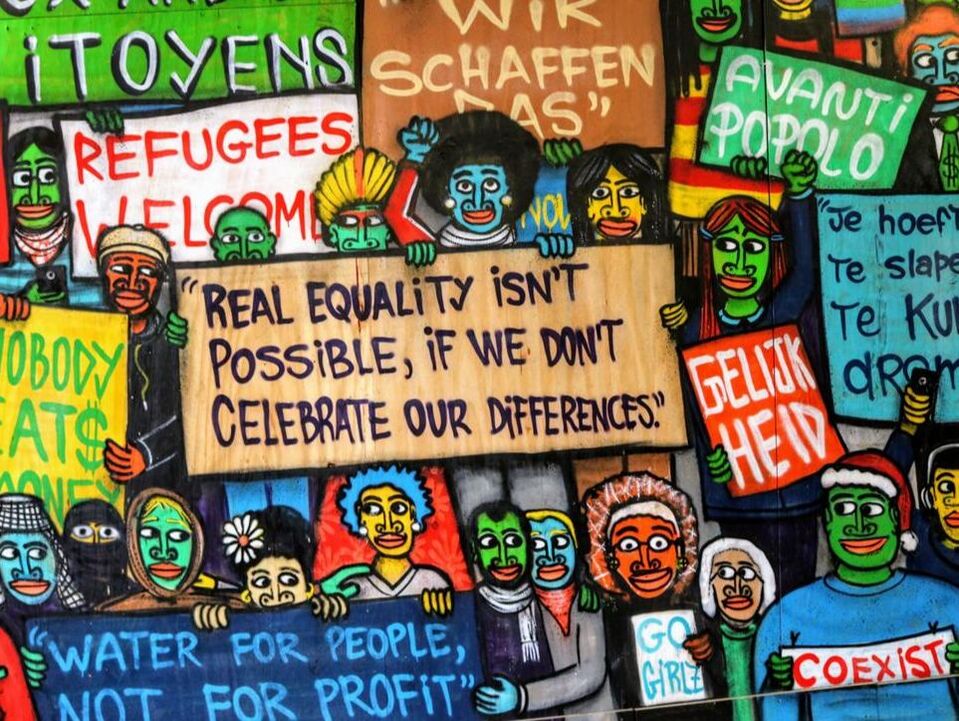
Othering processes are inherently complex, and in forced migration contexts, national public discourses tend to reverberate with anxieties over antagonism, discrimination and increasing tensions.
As an alternative to this public discourse, which ultimately tends to associate migrants and refugees with social threat, we might examine pockets of private and semi-private spaces from which quieter voices – women’s voices, perhaps – could catalyse more positive attitudes and better informed perceptions with a gender lens. One space where such voices might emerge is in all-women ‘gün’ (or ‘day’) groups. These are periodic, informal gatherings of relatives, friends and/or acquaintances, usually hosted in one member’s home, and are crucial spaces for women’s interaction and socialisation in Turkey. In fact, in my Identities article, co-authored with Hatice Mete, ‘The afraid create the fear: perceptions of refugees by “gün” groups in Turkey’, we analysed conversations from several of these groups in Mersin in order to investigate local women’s perceptions of forcibly displaced Syrians.
In the summer of 1998, 300 Kurdish refugees landed at the Ionian coast and received help from the local inhabitants of Riace, a small Calabrian town. Ever since, refugees have been hosted in houses that were abandoned by local emigrants looking for work abroad or elsewhere in Italy, and leaving behind an impoverished ‘ghost town’. Over time, local NGOs and the municipality have developed a comprehensive settlement programme for up to 400 refugees at a time. Refugees, in turn, bring new life into this once-dying town, and the settlement programme is combined with projects aimed at the socio-economic revival of the local community [1]. Curious to find out whether the welcoming attitude towards refugees (Sasso 2012) was genuine and how the support for them was generated, the first author of the Identities article, 'Local identity and the reception of refugees: the example of Riace', decided to live in one of the abandoned houses for a period of 5 months.
Through the ethnographic fieldwork of the first author, we soon found out that there are various economic, demographic and political factors underpinning the success of Riace’s reception programme. The article being discussed aimed to examine how the people in Riace created and enact a local identity of hospitality. In the article, we analysed the type of ‘identity work’ that the Riace inhabitants and local leaders are involved in. Far-right politics and anti-immigration parties often present refugees as a threat to the local identity due to their different cultural or religious background, and a strong national identity regularly goes together with the rejection of newcomers (Bansak et al. 2016). Theoretically, social identities are often conceptualised in terms of group boundaries and processes of boundary drawing (‘who belongs to us’; Wimmer 2009), but they also define specific norms, values and beliefs of ‘who we are as a community’. The case of Riace shows that when the content of the local identity is pro-social and a community defines itself in terms of hospitality, community members are inclined to act, think and feel in that way (Reicher et al. 2010). In agreement with this ‘social identity perspective’, our research demonstrates that a strong local identity can go together with the inclusion, instead of the exclusion, of newcomers.
I am sitting in the office of a refugee support and advocacy organisation in north-England to interview a refugee about her experience. The focus of our conversation is not on why Faith fled her country or how the charity helped her integrate in the UK. Instead, we talk about how she started working as a caseworker for one of the main refugee third sector organisations. When Faith walks into the office, people might think she is a client waiting for an appointment. They might initially be surprised when she sits down on the other side of the desk as they fail to recognise her as the professional worker that she is.
Stories about refugees and employment tend to highlight the significant obstacles in accessing the labour market (Kone et al. 2019). Lack of recognition of qualifications and home country work experience, short-term interventions by job agencies and language barriers all contribute to unemployment and deskilling. Many professionals end up in manual jobs in factories, catering or care. Refugees are overrepresented in so-called ‘3D jobs’; those that are Dirty, Dangerous and Degrading. Or they find work in 'ethnic niches', segments of the labour market with an overrepresentation of certain ethnic groups, such as the taxi industry or Ethiopian and Afghan restaurants. In my Identities article, ‘A window of opportunity? Refugee staff’s employment in migrant support and advocacy organizations’, I present the findings of my research into a very distinct employment 'niche' for refugees: the niche constituted by organisations that have asylum seekers and refugees as their client group. Based on interviews with refugee staff in the UK, the Netherlands and Austria, I argue that the concept of 'ethnic niche' fails to capture the particularities of the employment opportunities offered by the refugee third sector. |
|
Explore Identities at tandfonline.com/GIDE |
|
The views and opinions expressed on The Identities Blog are solely those of the original blog post authors, and not of the journal, Taylor & Francis Group or the University of Glasgow.
